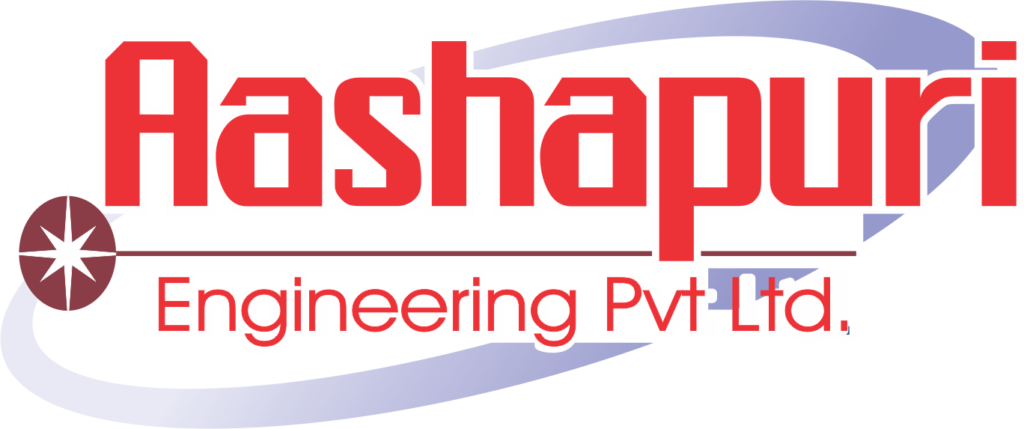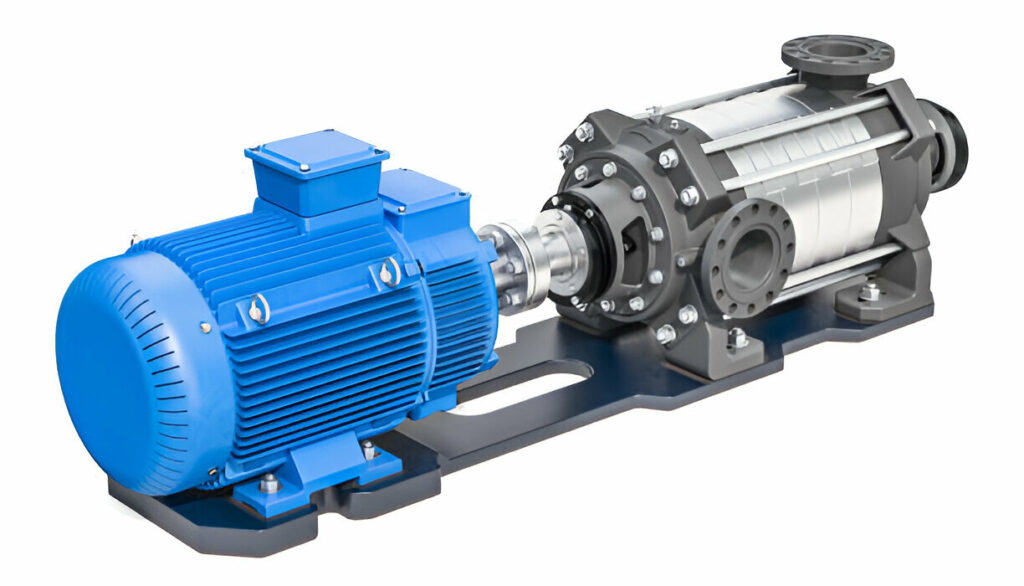The food and beverage manufacturing industry is highly stringent about hygiene, safety, and efficiency. Pumps, as part of these processes, transport liquids, semi-solids, and sometimes even particulate matter. The range of pumps used is diverse, but centrifugal pumps are prominent due to their efficiency and reliability. But like any other machinery, these pumps need regular maintenance to operate at their best. This blog focuses on the critical importance of pump maintenance, specifically to centrifugal pumps, and highlights the role of reliable manufacturers like Aashapuri Engineering Pvt Ltd, a leading Centrifugal Pump Parts Manufacturer in India.
Role of Pumps in Food and Beverage Manufacturing
Pumps in the food and beverage industry are engaged in diverse applications such as:
- Fluid Transfer: From water and milk to sauces and oils.
- High Viscosity Handling: Syrups, honey, and creams.
- Cleaning Operations: Circulation of cleaning solutions through CIP systems.
- Heat Transfer: Pumping coolants or heated fluids.
Because of their simplicity in design and ease of operation, with the ability to handle large flow rates, centrifugal pumps are preferred. Components used in these pumps include impellers, shafts, seals, and bearings; all these are vital to ensure proper functioning.
Why Maintenance is Important
Without regular maintenance, pumps may suffer from efficiency loss, resulting in production delays, contamination risks, and increased operational costs. In the food and beverage industry, where precision and cleanliness are paramount, these risks are amplified. Below are some key reasons why maintenance is indispensable:
- Ensuring Hygiene and Safety
The risk of contamination is likely in a malfunctioning pump with the accumulation of residues favoring bacterial growth. Cleaning and checking of pumps are some important processes in food-grade standards. As for example, Aashapuri Engineering Pvt Ltd is a reliable Centrifugal Pump Parts Manufacturer in India. The company provides highly precise engineering of parts that easily ensure cleaning and maintenance. - Prevent Downtime
Downtime due to pump failure can be costly. Maintenance schedules can help manufacturers recognize wear and tear early, which helps to replace and repair parts before failures become critical. - Energy Efficiency
Worn parts, such as impellers or seals, cause pumps to work harder and consume more energy. Maintenance helps ensure that all parts work at their best efficiency, thus saving energy costs and contributing to sustainability efforts. - Equipment Longevity
Replacing a pump is far more expensive than maintaining it. Regular servicing extends the lifespan of centrifugal pumps, ensuring that investments in equipment yield long-term returns.
Key Components of Centrifugal Pump Maintenance
Understanding the maintenance needs of a centrifugal pump involves knowing its key components and their potential vulnerabilities:
- Impellers
Impellers are responsible for creating the centrifugal force that propels fluids. With time, they can become corroded or clogged. Cleaning and, if necessary, replacing impellers ensure consistent performance. Reliable components from manufacturers like Aashapuri Engineering Pvt Ltd help maintain pump efficiency. - Seals and Gaskets
Seals prevent leaks, which is not only wasteful but can also pose hygiene risks in the food industry. Regular inspection and replacement of seals are necessary to prevent contamination. - Bearings
Bearings reduce friction in the rotating elements of the pump. Worn-out bearings can lead to vibrations and noisy operation, which eventually causes mechanical failure. Lubrication and timely replacements are necessary. - Shafts
Shafts connect the motor to the impeller. Misalignment or wear can lead to inefficiencies and potential damage to other parts. Alignment checks and ensuring proper tolerances are critical maintenance steps. - Casings
Pump casings protect internal components and maintain structural integrity. Any damage or corrosion should be addressed immediately to avoid leaks or pressure drops.
Maintenance Strategies
A robust maintenance plan is a mix of preventive, predictive, and reactive measures.
- Preventive Maintenance
This is through scheduled inspection and servicing that would prevent wear and tear. Major activities are:
- Cleaning the pump parts regularly.
- Lubricating moving parts.
- Replacing seals and gaskets.
- Predictive Maintenance
Manufacturers using new technologies like vibration analysis and thermal imaging can predict what might happen before the condition gets worse. It finds anomalies like misalignments or overheating. - Reactive Maintenance
In cases of sudden breakdowns, having access to high-quality spare parts is critical. Companies like Aashapuri Engineering Pvt Ltd, renowned for being a leading Centrifugal Pump Parts Manufacturer in India, provide durable and reliable components to minimize downtime during repairs.
Challenges in Pump Maintenance
While the benefits of maintenance are clear, there are challenges that manufacturers often face:
- Finding Quality Replacement Parts
Poor quality parts tend to degrade the pump’s performance and life. Using Aashapuri Engineering Pvt Ltd as a trusted vendor helps ensure compatibility and durability. - Maintenance Time
Maintenance scheduling so that it does not hamper production is quite challenging. Sophisticated planning and advanced predictive analytics help to control this. - Staff Training
Effective maintenance requires the correct staff. Proper maintenance training ensures that staff identifies issues early and completes their routine tasks effectively.
Choosing the Right Manufacturer
One role to be mentioned in the category of pump maintenance is that of reliable manufacturers. For instance, Aashapuri Engineering Pvt Ltd is a renowned name as a Centrifugal Pump Parts Manufacturer in India for offering the following services:
- Precision Engineering: Their parts are manufactured to exacting specifications, ensuring compatibility with a wide range of pump models.
- Durable Materials: Using high-quality materials like stainless steel, they ensure parts withstand the rigors of food and beverage manufacturing.
- Custom Solutions: Custom parts ensure that the performance and lifespan of the equipment are optimized according to the specific requirements.
Case Study: Efficiency Improvement via Maintenance
Dairy processing plant using centrifugal pumps to process milk and cream. Here, the plant used to experience frequent breakdowns. The reasons were mainly associated with poor maintenance practices along with inferior spare parts. The plant changed its strategy to proactive maintenance and used components from Aashapuri Engineering Pvt Ltd to get:
- 50% Decrease in Downtime: Predictive maintenance caught failures early.
- 30% Energy Efficiency Gain: Replacement of worn impellers increases pump efficiency.
- Quality Products: Consistent performance prevented contamination risks.
Good Practices of Pump Maintenance
- Regular Inspections: Issues are checked through weekly and monthly inspections.
- Maintenance Activity Documentation: Detailed records are maintained on repairs and replacements.
- OEM Parts Usage: Use original or quality parts from reputed manufacturers such as Aashapuri Engineering Pvt Ltd.
- Train Employees: Enable employees to understand how to keep things running smoothly.
- Invest in Modern Tools: Use things like IoT sensors for real-time monitoring.
Conclusion
Pump maintenance is not just a technical requirement but a strategic imperative in the food and beverage manufacturing industry. Proper upkeep ensures safety, efficiency, and longevity, directly impacting the bottom line. By sourcing high-quality components from reliable suppliers like Aashapuri Engineering Pvt Ltd, a top Centrifugal Pump Parts Manufacturer in India, manufacturers can enhance their maintenance efforts and achieve operational excellence.
Investment in regular maintenance and quality parts is not cost but a commitment to efficiency, safety, and sustainability in the competitive world of food and beverage manufacturing.

